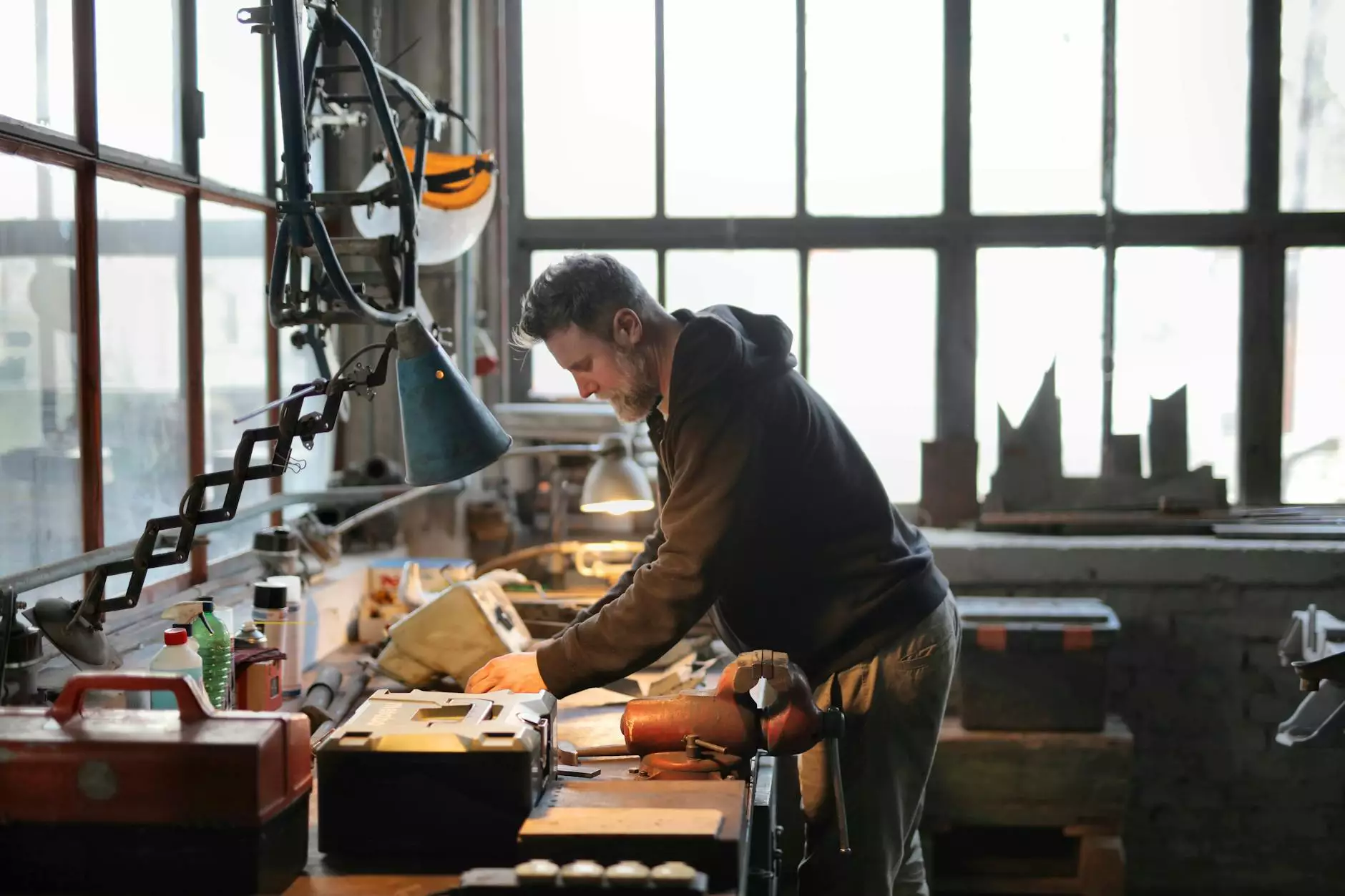The Rise of Concrete Equipment Manufacturers in the Modern Age

Concrete equipment manufacturers are at the forefront of the construction industry, facilitating major advances in technology and efficiency. Their contributions have revolutionized how concrete is mixed, poured, and finished, leading to faster project completions and higher quality outcomes in construction. In this article, we will explore the various aspects of concrete equipment manufacturing, from the technologies involved to the market trends affecting this vital industry.
Understanding the Role of Concrete Equipment Manufacturers
The role of concrete equipment manufacturers cannot be overstated. They provide essential machinery such as:
- Concrete Mixers - Allow for the efficient blending of raw materials to create concrete.
- Concrete Pumps - Facilitate the transportation of concrete to hard-to-reach areas on a job site.
- Batch Plants - Automate the mixing of concrete in precise proportions.
- Finishing Equipment - Tools used to smooth and finish the surface of the poured concrete.
This wide range of equipment is essential for any construction project that involves concrete, making concrete equipment manufacturers key players in the industry.
Emerging Technologies in Concrete Equipment Manufacturing
As technology advances, so do the methods used in concrete manufacturing. Here are some of the most prominent trends:
1. Automation and Robotics
Automation is transforming the construction field. With robotic technology, tasks that used to require significant manual labor can now be performed with precision and speed. For instance, robotic arms can efficiently handle the operation of concrete finishing tools, reducing the risk of human error and increasing productivity.
2. 3D Printing Technologies
3D printing is emerging as a game-changer in construction. 3D concrete printing enables the building of structures layer by layer, which not only speeds up construction time but also allows for more complex designs. This efficient method reduces waste and enhances sustainability in construction.
3. Sustainable Materials and Practices
In recent years, there has been a significant push towards sustainability. Concrete equipment manufacturers are now incorporating recyclable materials and promoting practices that reduce the carbon footprint of construction projects. Innovations such as green concrete and energy-efficient batch plants are becoming mainstream.
The Market Demand for Concrete Equipment
The demand for concrete equipment is steadily rising, and various factors contribute to this upward trend:
1. Global Infrastructure Development
Countries around the world are investing heavily in infrastructure, resulting in an increase in construction projects. This surge is primarily driven by:
- Urbanization: More people are moving into urban areas, compelling governments to build housing and essential services.
- Transportation Needs: Enhanced transport infrastructure, such as roads and bridges, is vital for economic growth.
2. Increased Commercial Real Estate Construction
The growth of the commercial sector has led to numerous construction projects, from office buildings to retail space. Concrete equipment manufacturers play a crucial role in enabling these projects to be completed efficiently and on time.
Case Studies of Successful Concrete Equipment Manufacturers
1. Polygonmach: Innovating with Electronics and 3D Printing
One of the leading names in the field is Polygonmach, which distinguishes itself through its advanced technologies—including electronics and 3D printing. They have been a pioneer in developing equipment that promotes:
- Smart Automation: Bridging the gap between traditional construction methods and modern technology.
- Enhanced Durability: Manufacturing equipment with longer lifespans.
- User-Friendly Interfaces: Simplifying operation for workers across all skill levels.
2. Focus on Custom Solutions
Many manufacturers, including Polygonmach, are focusing on providing customized solutions for varied construction needs. By understanding the specific requirements of different projects, they offer tailored equipment that meets client demands, ensuring maximum efficiency and effectiveness.
The Future of Concrete Equipment Manufacturing
Looking ahead, the concrete equipment manufacturing sector is expected to undergo numerous transformations as technologies evolve and market demands change. Here are some anticipated trends:
1. Integration of IoT
The Internet of Things (IoT) promises to create 'smart' construction sites where equipment and machinery communicate with one another. This integration will enhance monitoring and efficiency, potentially allowing for:
- Real-time updates: Keeping all stakeholders informed.
- Predictive maintenance: Reducing downtime by anticipating equipment failures.
2. Advancements in Material Science
New materials that enhance the strength and longevity of concrete are being researched. Concrete additives that improve performance, reduce heat retention, and increase resistance to elements are expected to emerge in response to environmental challenges.
Challenges Faced by Concrete Equipment Manufacturers
Despite the bright future, several challenges persist for concrete equipment manufacturers. These include:
1. Rising Raw Material Costs
With fluctuating prices of materials necessary for manufacturing concrete, companies must adapt by finding alternatives or enhancing operational efficiency to maintain profitability.
2. Skilled Labor Shortage
The construction industry frequently struggles with a shortage of skilled labor. Manufacturers must invest in training and development programs to ensure that workers are adequately equipped to operate advanced machinery.
3. Regulatory Compliance
With increasing scrutiny on environmental impacts, manufacturers must ensure that their processes comply with local and international standards for sustainability.
Strategies for Success in Concrete Equipment Manufacturing
Here are some strategic approaches that concrete equipment manufacturers can adopt to thrive in a competitive landscape:
1. Embrace Innovation
Constantly seeking out new technologies and incorporating them into manufacturing processes is crucial for staying ahead of the competition. This means investing in R&D and fostering a culture of innovation within the company.
2. Strengthening Partnerships
Collaborating with other companies, including suppliers and research institutions, can lead to shared resources and knowledge, creating better products and solutions for customers.
3. Focusing on Customer Service
Providing exceptional customer service ensures that clients feel valued and are more likely to return for future business. This includes not just meeting their needs but anticipating them.
Conclusion: The Impact of Concrete Equipment Manufacturers on the Industry
Concrete equipment manufacturers are integral to the construction industry, paving the way for innovative, efficient, and sustainable building practices. As demands evolve and technologies advance, these manufacturers will continue to adapt and thrive, influencing the landscape of construction worldwide. Their ability to innovate and meet the needs of the modern world is paramount as we construct the infrastructures of the future.
By focusing on technology, sustainability, and customer-centric approaches, leading manufacturers like Polygonmach are not just keeping pace with industry changes but actively shaping the future of construction.









